Life
Sign up for our newsletter
We summarize the week's scientific breakthroughs every Thursday.
-
 Science & Society
Science & SocietyMemory remains elusive, but the search continues
Acting Editor in Chief Elizabeth Quill explores the history of memory and scientists' search for its physical trace in our brains.
-
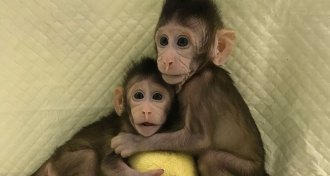 Genetics
GeneticsBaby macaques are the first primates to be cloned like Dolly the Sheep
Scientists have cloned two baby macaque monkeys with the same technique used to clone Dolly. The research could help advance the cloning of other species.
By Dan Garisto -
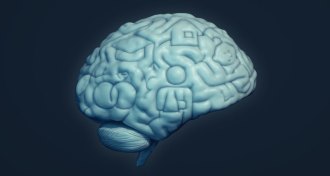 Neuroscience
NeuroscienceSomewhere in the brain is a storage device for memories
New technology and new ideas spur the hunt for the physical basis of memory.
-
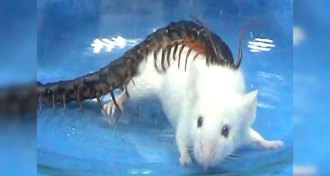 Health & Medicine
Health & MedicineHere’s the key ingredient that lets a centipede’s bite take down prey
A newly identified “spooky toxin” launches a broad attack but might be eased with a version of a known drug.
By Susan Milius -
 Health & Medicine
Health & MedicineNew twist on a flu vaccine revs up the body’s army of virus killers
A new approach to flu vaccine development makes influenza virus extra sensitive to a powerful antiviral system.
-
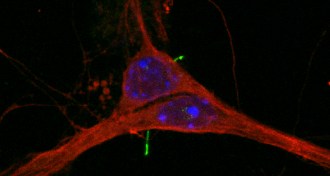 Neuroscience
NeuroscienceCilia in the brain may be busier than previously thought
A hairlike appendage sticking out of brain cells may be much more important in the brain than scientists realized.
-
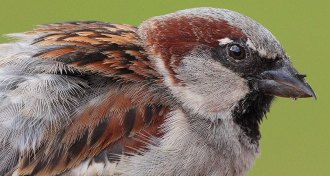 Life
LifeLight pollution can prolong the risk of sparrows passing along West Nile virus
Nighttime lighting prolongs time that birds can pass along virus to mosquitoes that bite people.
By Susan Milius -
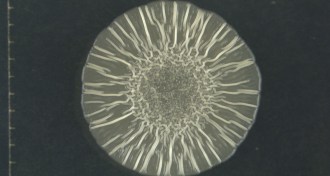 Microbes
MicrobesThe secret to icky, sticky bacterial biofilms lies in the microbes’ cellulose
Bacteria use a modified form of cellulose to form sticky networks that can coat various surfaces.
-
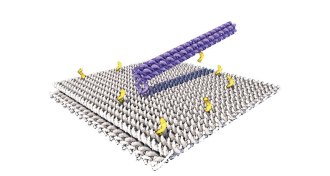 Life
LifeA robotic arm made of DNA moves at dizzying speed
A DNA machine with a high-speed arm could pave the way for nanoscale factories.
-
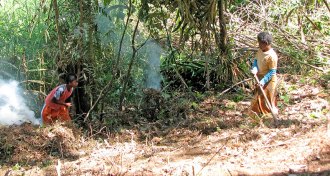 Anthropology
AnthropologyHunter-gatherer lifestyle could help explain superior ability to ID smells
Hunter-gatherers in the forests of the Malay Peninsula prove more adept at naming smells than their rice-farming neighbors, possibly because of their foraging culture.
By Bruce Bower -
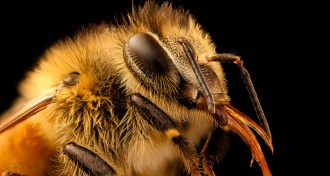 Animals
AnimalsThe mystery of vanishing honeybees is still not definitively solved
The case has never been fully closed for colony collapse disorder, and now bees face bigger problems.
By Susan Milius -
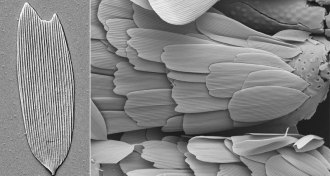 Paleontology
PaleontologyTiny scales in ancient lagoon may be the first fossil evidence of the moth-butterfly line
Fancy liquid-sipper mouthparts might have evolved before the great burst of flower evolution
By Susan Milius